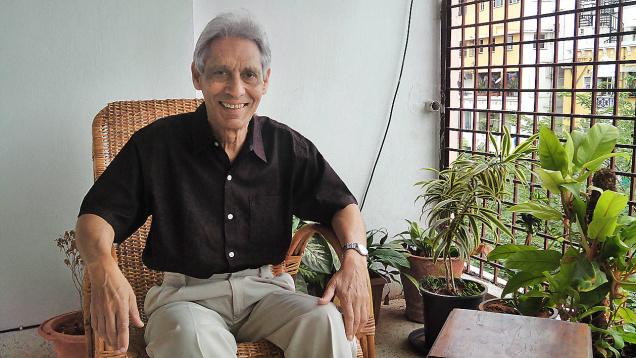
Ali Ansari’s first work of fiction takes the reader on Zarina’s journey which spans across countries and different belief systems
Unveiled, I show you my face. You, a man. I, a woman. Never the two can meet. But, we must talk. Woman to man.
These lines, penned by Zarina to Prophet Mohammed, in Ali Ansari’s debut work of fiction Dear Prophet will leave anyone curious, if not enthralled. Based on the life of a ‘liberated Muslim woman’, the novel follows the protagonist Zarina across borders in search of her son, Hamid who is on the run from both the American FBI and militant Islamic groups.
The story goes back and forth in time and space as Zarina recalls the events that led to Hamid’s disappearance. Sometimes frustrated, sometimes distraught but always introspective, in looking for Hamid, she finds herself embroiled in an internal struggle of belief and identity. As evident by the title, the narrative is formed by letters Zarina writes to the Prophet of her religion, Islam. Her letters act as soliloquies, giving the reader an intimate account of her journey and carrying the story forward. “I thought letters are a very personal tool of communication. Although the dialogue is one-sided, Zarina writes with the assumption that the Prophet understands her situation and predicaments,” explains Ali.
Was writing from the perspective of an Indian Muslim woman a tough task? “My feelings towards nature and my reaction to the brutality inflicted on it are more feminine, coming from the heart, not the mind. It came to me quite naturally,” says the engineer-turned-writer. Questioning man’s abusive relationship with the environment fostered by his materialistic lifestyle is only one of the key issues raised in the book. Starting from Zarina’s life in Hyderabad, through her marriage with Rashid and their subsequent divorce, to her decision to settle abroad, the book covers her struggles with marriage, motherhood, religion and, under the circumstances, Islamic terrorism.
Dear Prophet is autobiographical in parts. Like Zarina, Ali had left India when he was very young and moved to the United States for further studies and to work as a lecturer. Moving away from home, being exposed to a wholly different lifestyle had certainly triggered many questions in Ali’s mind. However, his need to find a deeper meaning in things has roots in his childhood in Hyderabad. Growing up in a home where he was exposed to Urdu classics and poetry, he became interested in Sufism, something he began to formally study only later, during his time abroad. Ali’s first book titled Sufism and Beyond, a look at Sufi thought in the light of Twentieth century science, is a result of this study. Ali is now based in Coimbatore and was in the city for a reading of the book held at Crossword.
The dialogue between Zarina and Hamid reflect Ali’s own questions about existentialism and religion. Rife with references to Sufism, Zen, Islam and even Native American mysticism, Zarina’s and Hamid’s story demands concentration and encourages introspection, achieving for the reader, albeit in a small way, what Zarina seeks to achieve — equanimity and mastery over one’s mind.
source: http://www.thehindu.com / The Hindu / Home> Books / by Zeenab Aneez / Hyderabad – October 08th, 2012








